Posts by Breakstone, White & Gluck
Fourth Season Begins for Boston’s Hubway Bike Share Program
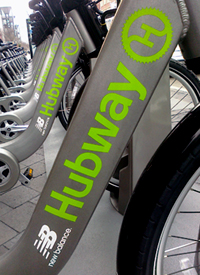 Hubway, Boston’s popular bike share program, launched its fourth season earlier this month. Four years shows a lot of ground covered for the program.
Hubway, Boston’s popular bike share program, launched its fourth season earlier this month. Four years shows a lot of ground covered for the program.
Hubway was launched on July 28, 2011, as a partnership between the City of Boston and Alta Bicycle Share, with 600 bikes at 60 rental stations. The program has been a big success and this season, riders will share 1,300 bikes at 140 bike rental stations in Boston, Cambridge, Somerville and Brookline. The program hit the 1,500,000-rider mark last Thanksgiving, then closed out 2013 with nearly 10,000 annual subscribers (and that’s not counting the short-term memberships).
In the past, Boston split both operating costs and profits with Alta Bicycle Share. Boston paid for its share using private sponsorships and public grant money.
But Boston is now venturing out on its own. Under a new contract, Boston will fund all operating costs and pay Alta Bicycle Share for services. The city will buy all services for a lower rate, about 30 percent less. For each bike dock, this translates into about $70 per month for maintenance and operations. This is lower than other U.S. programs, such as the Capital Bikeshare in Washington D.C., which pays $111 per bike dock.
This is good news and comes at a time when other cities are struggling to pay the bills for their bike shares. Montreal’s bike-share program filed for bankruptcy in January and New York City’s bike program recently asked officials for millions of dollars in aid.
In addition to seeking public grants and private sponsorship, Boston has kept costs down by closing bike racks for the winter. However, this past winter, Cambridge sites were kept open as a pilot test program.
What is new with Hubway this season:
Cambridge. The city kept Hubway racks open throughout this winter, as part of a pilot program. The system saw an average of 2,000 Hubway trips per week, with no injuries or incidents reported. Six new stations are expected to open this season.
Boston. Ten new Hubway stations are expected in Jamaica Plain and Dorchester this year.
Boston bike helmets. The program asks all riders to agree to wear helmets in their rental contract and has partnered with city businesses to offer subsidized helmets in the past. Last fall, it tested the first bike helmet vending machine in Back Bay, on the corners of Boylston and Massachusetts Avenue. The vending machine holds three dozen helmets and accepts returns.
Bike helmets are required for cyclists age 16 and under in Massachusetts. In addition to requiring use for Hubway cyclists, Boston city officials have discussed the possibility of passing a local law mandating use by all cyclists to protect riders from the risk of long-term head injuries in bicycle accidents.
Brookline. The city will re-open the same four stations in Coolidge Corner, Washington Square and Brookline Village.
Somerville. Somerville will open 12 stations this year. One change is the Ball Square station will be moved to Magoun Square.
Read More
Toyota, GM and Mazda Make New Headlines for Safety Recalls
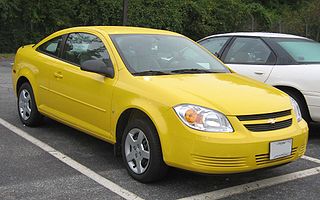 Toyota issues its second largest safety recall ever while GM CEO addresses Congress and Mazda reports a new web of problems
Toyota issues its second largest safety recall ever while GM CEO addresses Congress and Mazda reports a new web of problems
Toyota has more bad news for drivers. Just a few weeks ago, Toyota agreed to pay a record $1.2 billion criminal penalty to the federal government. The Japanese automaker, which has recalled over 9 million vehicles worldwide in recent years, recalled another 6.4 million vehicles on Wednesday for steering, airbag and other safety defects. This is the company’s second largest single recall announcement. Toyota states that it is not aware of any crashes or injuries involving these defects.
In March, Toyota agreed to pay the $1.2 billion criminal penalty to federal government for misleading consumers and the government about unintended acceleration in its cars and trucks. The Justice Department had charged Toyota with wire fraud, but agreed to defer the criminal charge for three years while the company submits to government monitoring.
This week’s recalls involve 27 Toyota models, including the RAV4 and Yaris. The largest recall involves 3.5 million vehicles which have defective spiral cables that can be damaged when the steering wheel is turned. Other defects involve a seat rail that can be pushed forward in a crash, as well as faulty steering column brackets, windshield wiper motors and engine starters.
GM ignition defects draw Congressional inquiry. Last week, General Motors CEO Mary Barra was questioned by Congress about faulty ignition switches in GM vehicles, and about her company’s slow response to protecting the public after learning about at least 13 deaths linked to the defect. GM has recalled over 2.5 million vehicles which may be equipped with the faulty ignition switch.
A week later, the National Highway Traffic Safety Administration (NHTSA) is waiting on more answers from General Motors. It reports the company has failed to respond to more than a third of its written questions. The company is being fined $7,000 each day for failing to fully respond, and the NHTSA is expected to hand the matter over to the Justice Department shortly.
Spiders and hoses and gas, oh my! Mazda also issued a recall this week, one involving an unusual, but familiar safety problem. For the second time in three years, Mazda has recalled 42,000 Mazda6 sedans. This recall involved vehicles from 2010, 2011 and 2012.
The problem is the yellow sac spider. The spiders are attracted to the smell of gasoline and can weave a web in the evaporative fuel hose, causing pressure to build up in the fuel tank. Too much pressure can cause fuel tank cracks, leaks and fires.
In 2011, Mazda had recalled 65,000 Mazda6s from 2009 and 2010 for this defect. The car manufacturer attempted to remedy the defect by installing a spring inside the vehicle’s fuel line, but recently reported nine cases in which this was not adequate. The company is not aware of any fires due to the defect, but will now notify car owners. The remedy requires checking of the evaporative canister vent line and software reprogramming.
Read More
Attorney David White Receives Volunteer of the Year Award from Boston Bikes
Attorney David White was recognized for his contributions to Boston’s cycling community at last night’s 6th Annual Boston Bike Update, which was held in the historic Faneuil Hall in Boston.
White, an attorney at Breakstone, White & Gluck, received the Volunteer of the Year award from Boston Bikes, the city office which oversees the growth of safety infrastructure, the Hubway bike share facilities, and programs for youth and low-income residents. White was honored alongside Bikes Not Bombs of Jamaica Plain, which received the Organization of the Year award. Jon Ramos was named Rookie Advocate of the Year and Vineet Gupta was Unsung Hero of the Year.
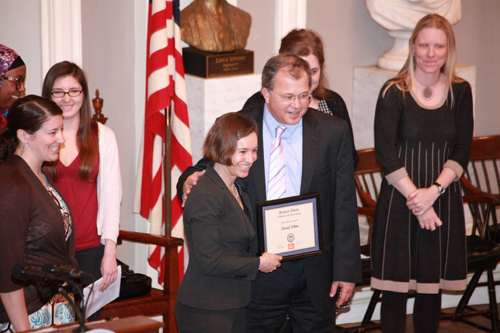
Photo credit: LivableStreets/www.livablestreets.info. Attorney David W. White of Breakstone, White & Gluck and Nicole Freedman, Director of Boston Bikes, during the 6th Annual Boston Bike Update at Faneuil Hall.
Jenny Duquette, Community Cycling Program Manager, introduced White:
“Our Volunteer of the Year is a former president of the Massachusetts Bar Association and a trial lawyer at Breakstone, White, & Gluck, which donated 160 helmets to Roll It Forward in 2013.”
“Like any superstar volunteer, he wanted to have an impact, so last year he volunteered at several bike giveaways as our helmet station guru – getting the kids excited about their new helmets, while making sure they got a helmet that actually fit! This year, his firm is donating helmets, locks, and light sets.”
Boston Bikes and Roll It Forward
Roll It Forward collects, repairs and distributes bikes to low-income Boston residents who might not otherwise have access to one. The program’s goal is to promote a healthier lifestyle with increased physical activity and fewer trips by car. As of January 2014, the program had distributed 2,728 bicycles. It plans to donate 850 more in 2014. In one very busy two-year period, the city’s youth cycling program gave safety classes to over 7,770 youth.
Former Mayor Thomas Menino established Boston Bikes in 2007 by hiring transportation planner and former Olympic cyclist Nicole Freedman. At that time, Boston only had 60 yards of bike lanes and was frequently cited as the worst city in the country for cyclists.
Today, the city has 60 miles of bike lanes. Boston Bikes is working to expand the network by adding a variety of new bike lanes, including new cycletracks, which will put a barrier between bike lanes and cars. The Hubway program, which launched in July 2011, continues to grow with more bike stations in Boston as well as Cambridge, Somerville and Brookline. And the program strongly encourages use of helmets, by asking riders to agree to wear helmets in the Hubway contracts, partnering with businesses to offer subsidized helmets and opening the first-in-the-nation helmet vending machine in Back Bay.
Related:
Watch the Boston Bike Update.
Read more about Boston Bikes.
View Facebook photos of the 6th Annual Boston Bike Update.
Read More
Will Toyota Criminal Penalty Improve Safety?
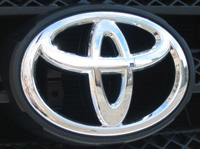 Toyota agreed last week to pay a record $1.2 billion criminal penalty for misleading consumers and the government about unintended acceleration in its vehicles. This safety defect and others have resulted in numerous injuries and deaths. Over 10 million Toyota vehicles have been recalled so far.
Toyota agreed last week to pay a record $1.2 billion criminal penalty for misleading consumers and the government about unintended acceleration in its vehicles. This safety defect and others have resulted in numerous injuries and deaths. Over 10 million Toyota vehicles have been recalled so far.
This is the largest criminal penalty ever imposed on a car manufacturer. As part of the agreement, the Justice Department charged Toyota with wire fraud but deferred the criminal charge for three years while the company submits to government monitoring.
We have been reading about Toyota’s safety defects for many years now, along with the more important violation of trust: the Japanese automaker repeatedly failed to warn the public about safety problems. CNN reported last week that the company “at one point boasted internally about saving $100 million in costs by avoiding a full safety recall.”
To date, Toyota has paid out more than $66 million in fines for not immediately reporting defects. Several of these fines have been record-breaking. In 2010, the National Highway Traffic Safety Administration fined the company a record $16 million for its delayed response in notifying the government about defects. In 2012, the NHTSA fined the company an additional $17.4 million.
The company has faced numerous injury and wrongful death lawsuits. In addition to sticky pedals and unintended acceleration, unsecured floor mats and other equipment have caused safety hazards. Last October, an Oklahoma jury decided that defective electronics were to blame for a car accident which killed a woman and seriously injured another person. Toyota was ordered to pay $3 million in damages.
As for Toyota, U.S. Attorney General Eric Holder told the Detroit Press: “Put simply, Toyota’s conduct was shameful. It showed a blatant disregard for systems and laws designed to look after the safety of consumers. By the company’s own admission it protected its brand ahead of its own consumers.”
Still, consumers have continued to buy Toyota. The company was the top-selling automaker in 2012 and 2013, selling 9.98 million vehicles in 2013.
Related:
Toyota to pay $1.2 billion in settlement with U.S. over recalls, CNN.
Read More
Massachusetts Court Judgment is Tragic Reminder About the Social Host Liability Law
A Massachusetts court judgment this week is a tragic reminder of what can happen when teens drink and drive and social host liability laws are ignored.
On Monday, 23-year-old Craig Snow was ordered to pay $1 million each to the parents of Julia Gauthier. In 2010, 19-year-old Gauthier, a freshmen at Salem State College, was killed in a car accident in Lynn when her boyfriend Christopher Maxson rolled the SUV he was driving. She and Maxson had just left a party hosted by Snow, who had provided the alcohol that night. Maxson pled guilty to motor vehicle homicide while driving drunk in December 2010.
Snow was charged criminally under Massachusetts’ social host liability law, but avoided jail time. Gauthier’s family also filed a civil lawsuit against him, resulting in this week’s judgment.
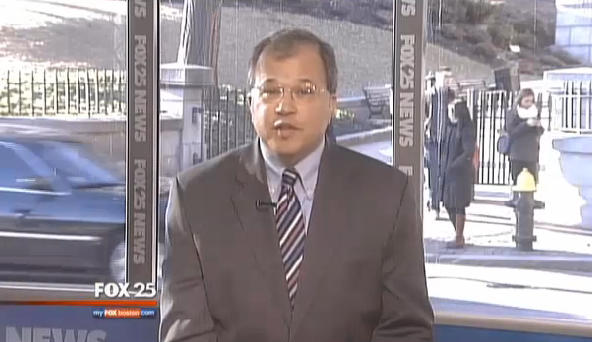
“The question here is reasonableness and you should not furnish so much alcohol to any guest that you have that they leave your house inebriated,” attorney David White said in a television interview this week with FOX 25 News Boston.
White added, “It’s a real strong reminder to parents as the graduation season approaches to take extra care to make sure their children aren’t driving drunk.”
Watch the Fox 25 News Boston interview.
Read more about the social host liability law on our website.
Read More
Healthy Lifestyle Wristbands Causing Skin Rash
 As it turns out, a popular wristband for tracking sleep and exercise was actually contributing to poor health.
As it turns out, a popular wristband for tracking sleep and exercise was actually contributing to poor health.
The Fitbit Force wristband has been recalled and pulled off the market after 9,900 reports it caused skin irritation. Another 250 consumers reported blistering. The product had only been on the market since October. The company has recalled about one million wristbands in the U.S. and 28,000 in Canada. The reactions can be caused by the stainless steel casing, materials used in the strap and adhesives used to assemble the product, the Consumer Product Safety Commission (CPSC) announced in its recall notice last week.
This recall involves Fitbit ForceTM wireless activity-tracking wristbands with model numbers FB402BK, FB402BKS, FB402SL and FB402SLS. Consumers should contact San Francisco-based Fitbit for a full refund. They can call (888) 656-6381 or visit www.fitbit.com and click on Recall/Safety info on the bottom right side of the home page.
The wristband serves as a pedometer, sleep monitor and watch. It is about ¾ inch wide and is made of plastic with a stainless steel casing and clasp and a small LED display screen.
The recalled wristbands had a wide distribution. They were sold at several major retailers, including AT&T, Apple Stores, Best Buy, Brookstone, Dick’s Sporting Goods, Radio Shack, REI, Sports Authority, Target and other stores. It was sold online at Amazon.com and Fitbit.com. Each was sold for about $130.
In a statement to the media, Fitbit said that “a thorough analysis by independent labs and medical experts revealed that the reactions reported by a small percentage of Force users were likely the result of allergic contact dermatitis.” The exact number appears to be in dispute as consumer watchdogs questioned the figures following the CPSC recall announcement. The company had previously issued a voluntary recall on its own on Feb. 21, offering a refund to consumers who wanted one.
Related:
Fitbit Recalls Force Activity-Tracking Wristband Due to Risk of Skin Irritation, Consumer Product Safety Commission
Reports of Rashes Spur Fitbit Recall, ABC News.
About Breakstone, White & Gluck
The Massachusetts product liability lawyers at Breakstone, White & Gluck have over 100 years combined experience handling injury cases involving defective products. If you have been injured, it is important to learn your rights. For a free legal consultation, contact us at 800-379-11379 or 617-723-7676 or use our contact form.
How Dangerous Is That Boston Intersection?
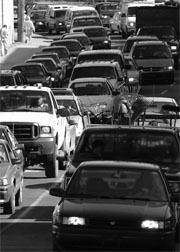 Boston drivers may have a reputation for being the worst around, but the city has managed to stay off a list of most dangerous intersections in New England. On the list, compiled by GoLocal Worcester, the closest Boston came to mentions were intersections in Somerville, Chelsea and Cambridge.
Boston drivers may have a reputation for being the worst around, but the city has managed to stay off a list of most dangerous intersections in New England. On the list, compiled by GoLocal Worcester, the closest Boston came to mentions were intersections in Somerville, Chelsea and Cambridge.
This Somerville intersection of Mystic Avenue and Fellsway was third on GoLocal Worcester’s, “60 Most Dangerous Intersections in New England” and first on its, “10 Most Dangerous Intersections in Massachusetts.”
60 Most Dangerous Intersections in New England
New Haven, Connecticut is home to the worst intersection in New England, with 561 car crashes reported over three years. A stretch of Interstate 95 in Pawtucket, Rhode Island came in second, while Somerville’s Mystic Avenue and Fellsway intersection ranked third.
10 Most Dangerous Intersections in Massachusetts
GoLocal Worcester ranked dangerous intersections based on total number of crashes over three years, deaths, injuries and property damage. It collected data from each state’s Department of Transportation. It considered traditional intersections as well as on- and off-ramps on highways.
1. Somerville: Mystic Avenue and Fellsway. This intersection saw 91 total crashes over three years, including three fatal crashes, 24 crashes resulting in injuries, and 64 car accidents which resulted in property damage only.
2. Chelsea: Revere Beach Parkway and Washington Avenue. This roadway saw 39 total crashes in three years, including two fatal car accidents, 11 with injuries, and 26 crashes which resulted in property damage only.
3. Stoughton: Canton and School streets. The numbers were very similar to Chelsea: 39 car accidents in three years, including two fatal auto accidents, 10 with injuries and 27 with property damage only.
4. Waltham: Main and Lyman streets. Some 73 crashes in three years, including one which resulted in a death, 18 resulting in injuries and 54 crashes with property damage only.
5. Holyoke: Main and Cabot streets. This spot saw 57 car accidents over three years, including one fatal car crash, 18 with injuries and 38 which resulted in property damage only.
6. Worcester: Main and Mill streets. This area saw 53 total motor vehicle accidents, including 1 traffic death, 18 crashes resulting in injuries and 34 resulting in property damage only.
7. Cambridge: Massachusetts Avenue and Vassar Street. This area saw 41 car crashes, including one fatal accident, 19 with injuries and 21 with property damage only.
8. Lowell: Veterans of Foreign Wars Highway and Varnum Avenue. This area saw the second highest number of traffic accidents, with 165 over three years. There were no fatal car crashes, 37 with injuries and 128 which resulted in property damage only.
9. Holyoke: Holyoke Street and Holyoke Mall at Ingleside. This intersection saw 198 crashes over three years, more than any other spot on GoLocal Worcester’s list. There were no fatal car accidents, but there were 29 accidents resulting in injuries and 169 crashes resulting in property damage only.
10. Lowell: Bridge Street and Veterans of Foreign Wars Highway. There were 112 car accidents here over three years, including no fatal crashes and 34 which resulted in injuries. Some 78 other motor vehicle accidents resulted in property damage only.
Related:
10 Most Dangerous Intersections in Massachusetts.
60 Most Dangerous Intersections in New England 2014.
Read More
February Product Recalls: CPSC Urges Consumers to Look for Cedar Chests after Children’s Deaths
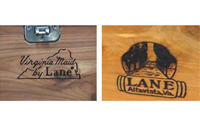 We share some of the February product recalls and notices issued by the Consumer Product Safety Commission (CPSC). Each year, thousands of unsafe products are recalled by the CPSC and other government agencies. The CPSC is now focused on the dangers of wooden chests, issuing a renewed call for the cedar chests which recently trapped two young children in Franklin and warning about other chests which have unsafe latches. Since 1996, the agency is aware of 34 reports of deaths involving wooden storage and toy chests.
We share some of the February product recalls and notices issued by the Consumer Product Safety Commission (CPSC). Each year, thousands of unsafe products are recalled by the CPSC and other government agencies. The CPSC is now focused on the dangers of wooden chests, issuing a renewed call for the cedar chests which recently trapped two young children in Franklin and warning about other chests which have unsafe latches. Since 1996, the agency is aware of 34 reports of deaths involving wooden storage and toy chests.
Protect your family and home by taking a quick glimpse at this month’s list:
Renewed Search for Cedar Chests. On Feb. 27, the CPSC and Lane Home Furniture issued a call for the public to make a renewed search for the company’s cedar chests. On Jan. 12, a young brother and sister from Franklin suffocated to death in one of the chests while playing hide-and-seek. The CPSC investigation determined that the 75-year-old Lane cedar chest closed and automatically latched shut, locking the children inside.
The chest should not have been in use with the defective locks. In 1996, the Lane Company recalled 12 million similar chests which were made between 1912 and 1987. By 1996, six children had suffocated inside the cedar chests. By 2000, a seventh child had suffocated and two others had nearly died. The company has offered new hardware so the chests will no longer automatically latch shut, but reports estimate there are still 6 million chests which need the repair.
Consumers may have one of these chests in their homes even if they do not realize it. Some may have been purchased at second-hand stores or passed down through families. In the Franklin case, the CPSC said the chest was purchased at a local resale store about 13 years ago. Consumers can look for these names inside the cedar chests: “Lane” and “Virginia Maid.”
If you have a chest, you should immediately remove the latch and contact Lane for the replacement hardware. Read the recall notice.
Infantino Recalls Teething Toys Due to Choking Hazard; Sold Exclusively at Target
Infantino has recalled about 191,000 teething toys sold at Target. The toy was the “Go Gaga Squeeze & Teethe Coco the Monkey.” The company received seven reports of infants choking or gagging on the monkey’s tail. No injuries have been reported. The toys were sold at Target stores nationwide and online from December 2012 through January 2014 for $13. Consumers should take these toys away from young children and contact Infantino for a free replacement.
BebeLove Recalls Baby Walkers Due to Fall and Entrapment Hazards
BebeLove Baby Walkers were recalled for not meeting federal safety standards. BebeLove USA recalled about 3,600 models sold on Amazon.com, Overstock.com and small retailers in California, Arizona and Utah from November 2011 through July 2013.
Consumers can are advised to stop using the product and contact BebeLove for a free repair kit.
No injuries have been reported, but the CPSC reports that style number 358 can fit through a standard doorway and is not designed to stop at the edge of a step as required by the federal safety standards. In addition, style number 368 has leg openings which allow a child to slip down to the point their head can become entrapped at the neck. The CPSC said children using these walkers can be seriously injured or killed.
Rowe Fine Furniture
Rowe Fine Furniture recalled about 220 Ottomans due to a risk of suffocation. No injuries were reported, but the company learned a child became trapped in an Ottoman after a sibling closed the lid on the storage compartment. Consumers can contact Rowe for a free replacement lid and a warning label.
Study: 40 Percent of Americans Would Encourage Children Not to Play Football
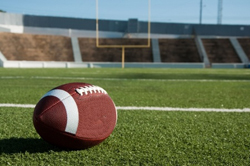 Last summer, the National Football League (NFL) announced it had reached a $765 million settlement with retired players who suffered from concussions and head injuries. But a federal judge has rejected the settlement and the debate about how to address the risk continues.
Last summer, the National Football League (NFL) announced it had reached a $765 million settlement with retired players who suffered from concussions and head injuries. But a federal judge has rejected the settlement and the debate about how to address the risk continues.
Even President Barack Obama has spoken: “I would not let my son play pro football,” he told The New Yorker magazine. But like many of us, he is a fan; he made the statement while watching the Miami Dolphins play the Carolina Panthers.
Recent surveys show many agree with the president, but many do not. In January, a NBC News/Wall Street Journal poll reported 40 percent of Americans would encourage their children to play another sport. Nearly 60 percent answered they would not discourage their children from playing organized football. Other findings include:
- Some 41 percent thought the NFL has taken meaningful action to reduce and prevent concussions; 20 percent disagreed.
- Roughly half of those surveyed with an annual salary of $75,000 or more said they would encourage their child to play another sport. On the other hand, only about 25 percent of those who earned $30,000 or less per would try to steer their child to another sport.
- One third of those who did not attend college said they would encourage their children not to play football, compared to 42 percent of college graduates and 57 percent of people with post-graduate degrees.
The NBC News/Wall Street Journal poll included 800 adults and had a margin of error plus or minus 3.46 percentage points.
Another Poll
In October, a HBO Real Sports/Marist poll reported a deeper divide. Out of more than 1,200 adults, one third said they would be less likely to allow their own son to play football if given the choice. But in the end, 85 percent said they would let their son play. Another 13 percent said they would not and two percent were unsure. (The study did not report on how respondents would feel about letting their daughters play.)
NFL Concussion Lawsuit
The NFL released figures in January showing the number of player concussions dropped 13 percent from 2012 to 2013. It has taken several steps to prevent concussions, including adding neurological consultants to the sidelines and replacing equipment.
But another notable part of the debate came from a recent NFL Nation survey of 320 players, just prior to the Super Bowl. The survey reported 85 percent would play in a Super Bowl with a concussion.
More than 4,500 retired players have filed concussion-related lawsuits against the NFL. The settlement must cover over 20,000 retired players for 65 years. The players accuse the league of long concealing the long-term risk of concussions from players, coaches and trainers. If an athlete suffers multiple concussions, it can lead to chronic traumatic encephalopathy (CTE), a progressive degenerate disease of the brain which is associated with memory loss, depression, paranoia, confusion and dementia.
Related:
Going the Distance, The New Yorker.
Poll Finds 40 Percent Would Sway Children Away from Football, Wall Street Journal.
Read More
Heaving Snow Posing Risk for Homeowners and Roofs
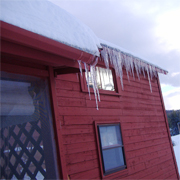 A young woman’s death after heavy snow caused a roof collapse in Weymouth has officials warning the public to watch out for their homes.
A young woman’s death after heavy snow caused a roof collapse in Weymouth has officials warning the public to watch out for their homes.
On Thursday, a 29-year-old woman was killed when a carport collapsed on her. The woman was talking on the phone while sitting on the porch steps of a Harlem Road home. The Massachusetts Emergency Management Agency (MEMA) has issued a warning for the public to clear off their home roofs and storm drains in their neighborhoods to minimize flooding problems.
While we expect snow in Massachusetts, it has challenged drivers and caused numerous school day cancellations this season. Piles of snow have hampered visibility. Drivers are navigating a maze of snow-packed and slushy roads along with dangerous potholes and, which are starting to appear in the melting.
In addition to the Weymouth woman’s death, a barn collapse in Framingham killed three cows and injured four others this week. At the Burlington Mall, a water main break trapped a vehicle in a large sinkhole. The mall was closed but expected to re-open today.
It may seem like a record-setting season, but not this year. Yes, we are already 25 inches above the average season’s snowfall. But earlier this week (before the snowfall) the Boston Herald reported that while Boston had seen 53.5 inches, 1995-1996 was the record snow year, with 107.6 inches. The National Weather Service has predicted this season will not even make the top 10 list for heaviest snowfalls.
When snow piles up, some roofs are vulnerable to collapse, especially when there are numerous snow storms combined with rain and overnight melting. Flat commercial roofs are at the greatest risk. This year, while the snow may not appear that deep, some of the storms have dumped heavy wet snow, and that has been followed by soaking rains. The loads are immense.
How to remove snow from a roof is a challenge. Homeowners can attempt to clear it themselves with a snow rake, which can be purchased at most hardware stores. But you should never use a snow rake from a roof. You should clear the snow from the ground to avoid the risk of slipping and falling and head injuries.
Unless you are experienced, avoid ladders, which can be extremely slippery. The other thing to know is that metal snow rakes can conduct electricity if they come into contact with a power line.
Often by this time of year, a roof may require a professional treatment because of repeated snow storms and winter freezing. If that is the case, call someone who is experienced and insured for this type of work. They should be insured in case they damage your home, and they should also carry worker’s compensation insurance for their employees. You have the right to ask for proof of insurance, and you should.
Finally, do take some time to shovel your walks and your stairs. It the safe and the neighborly thing to do.
Read More

